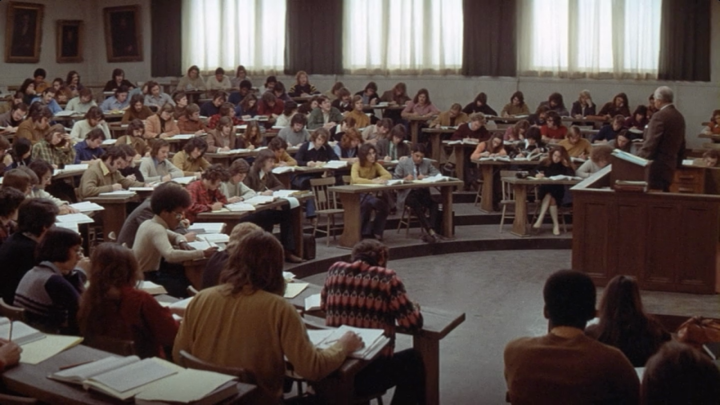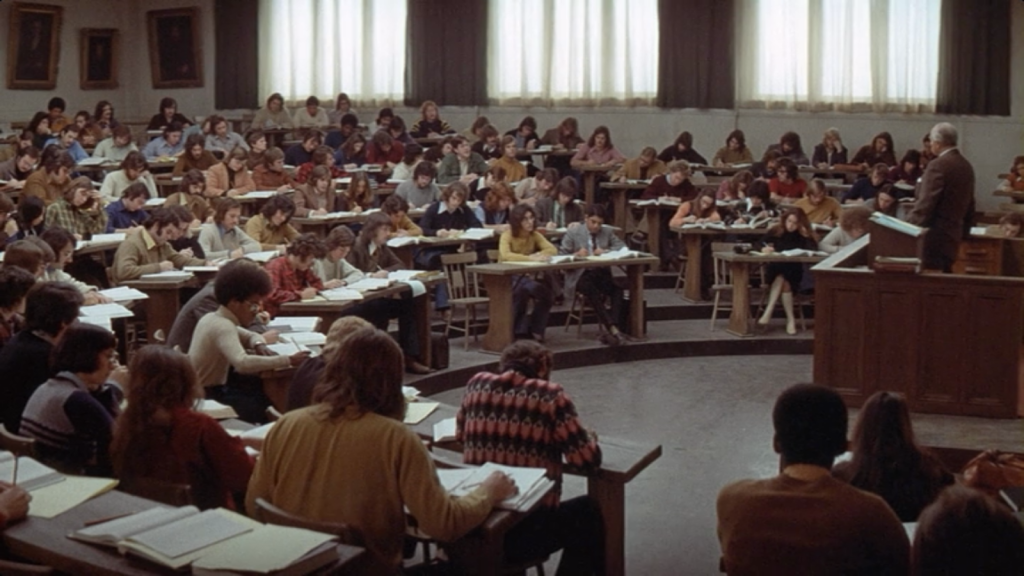

Upon the start of a new school year, Osgoode Hall sees its previous cohort of once bare-faced and impressionable 1Ls return as freshly minted 2Ls. What a milestone! Each one of these three hundred or so law students can confidently say that they managed to navigate the complexities of contracts and the capricious nature of the Canadian Constitution. What’s more, they likely pulled a B in the process! While still up for debate, the general consensus seems to be that, for these accomplished new 2Ls, the worst is over. But how bad is 1L really? Let’s take a look.
What is 1L?
We all know that 1L refers to a law student’s first year of law school. But what is it really? Apart from the plain and literal meaning of the term, 1L can be characterized as a type of marathon in which law students eat, breathe, and sleep law school, competing to keep their heads above water while drowning in the continuous buffet of readings, assigned and additional. 1L is a marathon because the only way to make it through is to endure. In other words, it’s an academic cardiovascular exercise. The sheer volume of work across a variety of introductory courses establishes a basic foundation for law students to build their legal careers. You learn how to interpret the plain text rules of statutes, identify principles from cases that aid in said interpretation, and much more. The problem with the exercise analogy, however, is that exercise is meant to be done in moderation with the goal of improving one’s health. If you overexert yourself, you’ll sustain an injury. In law school, you don’t have a choice. The treadmill is running, and your hands are glued to the handrails.
While some students appear to handle their first year well, it is, for many, an exhausting process that inflicts appreciable psychic damage, the extent of which often cannot fully be appreciated until after the student returns as a 2L. Upon returning to law school in second year, the difference is stark. If a student was attentive to their scheduling, they may only have classes three–and in the most fortunate cases, two– days a week. Some are enrolled in the classes of their dreams. Others are taking classes that sounded cool, but turned out to be a total bust (Mediation Clinic, anyone?). What’s more, a small slice of the student body may find themselves off campus, studying in the likes of Germany, England, or working downtown at Parkdale Community Legal Services. Regardless of what your 2L looks like, the difference is palpable. While still busy, 2L almost certainly provides some space to breathe—at least in a relative sense, unless you’re the rare type who decided to take extra credits.
Many have said that the incoming 1Ls seem to look a lot younger and happier. I personally remember the majority of incoming students glowing and fresh-faced as they registered for orientation week and picked up their bags of firm-branded trinkets. If I didn’t know any better, I would have suspected that a solid third of them were just beginning their undergraduate degrees.
The 2Ls on the other hand? The glow is gone.
Maybe it’s because the incoming students all try to look their best during the first few weeks of school. Maybe it’s because all of their faces are new, and we’re just not used to seeing them around. However, many, including myself, suspect it’s an accelerated aging process due to the chronic stress-inducing nature of 1L. When asked about their thoughts on this, JD/MA student Daniel Liu says, “Accelerated aging? Totally agree. I started 1L at the tender age of 24 and by the time I finished, I was 25. Just like that.”
Some students, on the other hand, emphasize the newness of 1L as a factor that may impact our wellbeing and how we present ourselves. Despite this emphasis, the stress of 1L can be overbearing. One 2L student says that “first year law students look younger because law school, like any other beginning of a new chapter, is a time where you reinvent yourself in the beginning. You discover yourself a bit more in terms of style, appearance, and presentation. You might come in loud, but you don’t want to be loud anymore. But then also, the stress makes you quiet down.”
When asked to reflect on her 1L experience, 3L student Ashini Peiris says, “1L was a year of change. Not only were we entering an extremely rigorous and demanding academic environment, but we were also reinventing our social circles. As someone with no family or friends in law, I felt so lost.”
2L student Mark simply says, “YIPPEE!” in response to a question about his 1L experience. Clearly, the damage in this instance has been done.
Studies have shown that law students report higher levels of psychological stress than the general population. More worryingly, studies have also shown that while students tend to enter law school with rates of depression similar to the general population at 10-20%, they leave 1L with much higher rates, ranging between 30% and 50%. Studies aside, I think many of us can confidently say that 1L will take a toll on your health, both physically and mentally.
The good news is that 1L doesn’t consist of only constant hard work. It’s an opportunity to make friends, learn about areas of law that you would otherwise never touch with a ten-foot pole, and grow as a person. On top of this, the curve pretty much guarantees you’ll pull a few solid grades, absent serious issues out of your control or a complete lack of effort.
The community at Osgoode also deserves credit. While reflecting on her 1L experience, Peiris looked back positively on the role the student body played in her success. “Thankfully, what made 1L easier were my friends. Having a support system like I did was invaluable during this time. I learned so much about everything law school-related, just from listening to their discussions or asking for advice, all while doing fun activities! Osgoode students love to help Osgoode students, so reaching out and forming relationships were crucial to easing the strain of
our demanding course load. The change is hard, but finding great people who want you to succeed was far easier than I thought it would be.”
So, what’s the takeaway from all of this? I think that it’s important to put the experience into context. 1L may very well accelerate the aging process for those who partake, but the sense of satisfaction one receives upon its conclusion is worth the effort. I feel immense pride to have made it through 1L; I can confidently say that you all should, too. It may be one of the most strenuous experiences you’ve ever had, but it feels great to get off the treadmill knowing you were up to the task.
